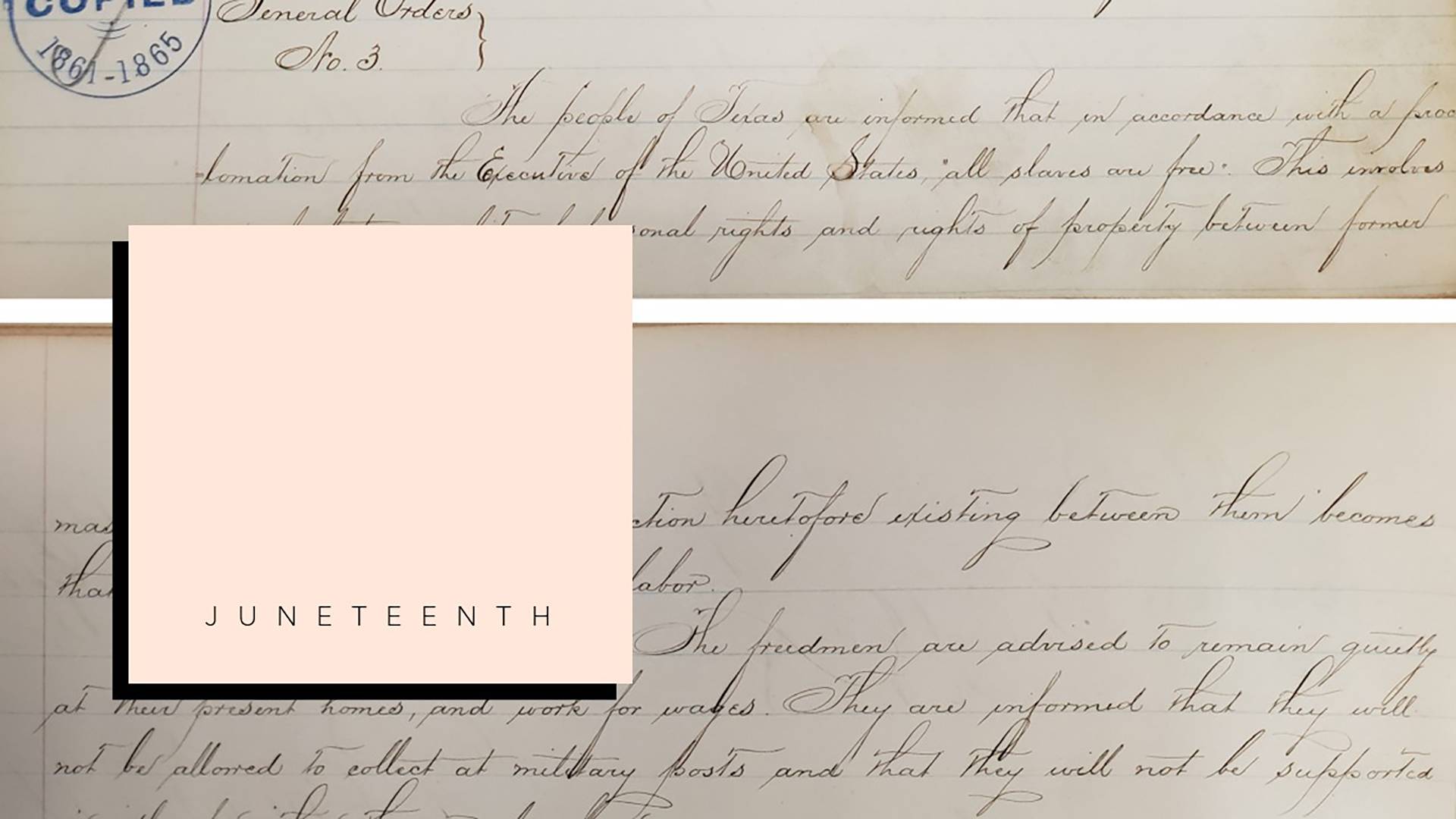CSSW Juneteenth Statement

On June 19, 1865, Black communities across Texas heard the official in-person in-state declaration by Major General Gordon Granger that the United States government had rendered slavery illegal across all states and territories under the control of the United States. This overthrow of slavery came about because of the largest slave revolt in the Americas, as W.E.B. DuBois repeatedly argued for the Civil War over the course of his career as a sociologist and a historian.
A year later, people, families and communities across towns and cities across Texas gathered to commemorate the enshrining of the Emancipation Proclamation as well as their resistance to being turned into mere tools in the agricultural, domestic and industrial workplaces that make up Texas. They came together in the face of the passage of the Black Codes in legislatures across what had once been the Confederacy. A widespread revulsion to the Black Codes led to a national push to end this post-Emancipation form of racialized control over Black communities, their time and their labor culminating in the military administration of the South and the passage of the 13th, 14th and 15th amendment as well as the 1866 Civil Rights Act.
The decision by countless Black families to make their presence known in the public square also demonstrated the importance of the living Emancipation Proclamation, carried out at an individual level in the preparations for gatherings of all sizes, reminding us that freedom in this country must be regularly secured and can never be taken for granted – because of the way many communities treat vulnerable and stigmatized people in the United States. Shared food – in chef Bryant Terry’s understanding – is the practice of freedom.
Supreme Court Justice Ketanji Brown Jackson and legal scholar Melissa Murray have argued that the record of this congressional commitment to transforming the constitution to include the fulness of Black experiences had been and should be part of any originalist discussion of the American constitution. This legal and political commitment to a post-Civil War understanding of citizenship and due process has been lost to public memory in predominantly white institutions. This attack on the legislative record is due to concerted actions during the Gilded Age and over the course of the 20th Century America by many people and institutions like distinguished Texans George W. Littlefield and Sally Ward Beretta to erase the presence and agency of Freed communities in American memory and the history of the United States. This general amnesia regarding the aftermath of the Civil War should remind us all to pay attention what actually happened in 19th century Texas, and to place community memories guarded by people like Opal Lee into conversation with national memories of 19th century America.
Juneteenth has become ingrained in the cultural practice of the United States because of the outsized presence of Black Texans in Texas and in the Great Migration. The annual gatherings got held in cities and towns in homes, churches, parks and plazas across the South, West, Midwest and North – sparking conversations about the importance of this announcement alongside all the other issues that can be discussed in family and community gatherings. As Texans took up residence in Compton, Gary, Detroit, Richmond, Oakland, Chicago, Cleveland, Minneapolis and so many other places, their annual picnics resonated with many of their neighbors, co-workers and parishioners. The global revulsion that accompanied the public murder of Houston-born George Floyd has led to the institutionalizing of Juneteenth as a federal holiday. It is only right that Black Texans continue leading the way in the culture and commemoration of Juneteenth across the United States.
In San Marcos, the Calaboose African American History Museum, the Dunbar School and Cephas House are public reminders of the commitment Black communities have made to stand against their erasure in Texas. As campaigns to restrict access to the materials of history have gained strength across the United States, the existence of Juneteenth and other community institutions remind us of all of the concerted work it takes to pay attention to what happened to vulnerable, stigmatized and exploited communities in the United States.
John Mckiernan-Gonzalez
Bibliography
- National Archives Safeguards Original ‘Juneteenth’ General Order
- W.E.B DuBois, Black Reconstruction in America, 1860-1880 (NY: Free Press, 1998)
- Kidada Williams, I Saw Death Coming: Terror and Survival in the War against Reconstruction (New York: Bloomsbury, 2023)
- David Blight, Race and Reunion: The Civil War in American Memory (NY: Oxford University Press, 2009)
- The United Senate, The Nomination of Ketanji Brown Jackson to be an Associate Justice of the Supreme Court of the United States, March 21, 2022.
- Melissa Murray, Reproductive Rights and Legal Stories (Santa Barbara: Foundation Press, 2019)
- Bryant Terry, Black Food: Stories, Art and Recipes Across the African Diaspora (San Francisco: 4 Color Books, 2021)
- Thavolia Glymph, Out of the House of Bondage: The Transformation of the Plantation Household (NY: Cambridge University Press, 2008)
- Robert Samuels and Toluse Olorunnippa, His Name is George Floyd: One Man’s Life and the Struggle for Racial Justice (New York: Viking, 2022)
- Author’s note
- Much of this essay was penned after visiting the Black Venus exhibit at the Museum of the African Diaspora while visiting family in the Bay Area. The exhibit theme – Reframe, Resist, Repeat – speaks directly to Juneteenth. For more on the artists as well as the exhibit by Aindrea Emelife, see the Museum of the African Diaspora.
